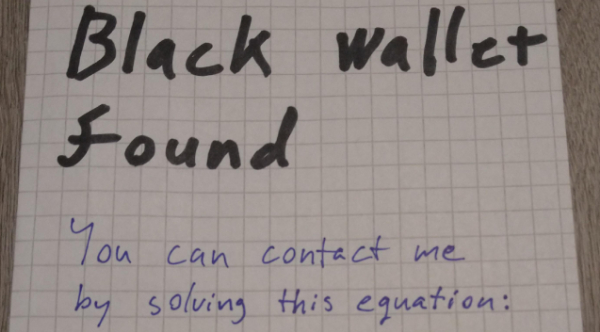Enormous Craft Detected On Moon, The Secret Is Out (Photos)
January 20, 2014
This article is from TurnerRadioNetwork.com

At least one enormous object of unknown origin has been visually verified as having landed on our moon. As a result, on Wednesday, January 15, three Terrier-Orion rockets blasted off within a span of 20 seconds from NASA's Wallops Flight Facility between 1 a.m. and 5 a.m. EST (0600 to 1000 GMT) on hush-hush missions for the Department of Defense (DoD).
TRN has obtained photos of the unknown spacecraft and has an audio interview with an outside consultant from NASA's Meteoroid Environment Office (MEO) who confirms that for almost two years the U.S. government used the MacDonald Observatory in Texas to track the approach of two of these enormous objects. A year ago, in January 2013, the objects had gotten to within 200,000 miles of Mars when they suddenly vanished.
Realizing these two craft were approaching earth and might not be visible to NASA's Lunar Reconnaissance Orbital Camera (LROC) depending upon where they went, the Government reactivated the previously cancelled Lunar Atmosphere and Dust Environment Explorer (LADEE) to be launched to the moon on September 6, 2013. It took almost 100 days for LADEE to be placed into proper lunar orbit. By December, 2013, both LADEE and the LROC found at least one of the two enormous objects had landed on the moon, in a crater the size of the City of Chicago.
All of this was kept secret until, quite by accident, the LROC images (which are generally made public) were uploaded to the publicly available GoogleMoon service, where intrepid users came upon the enormous object. Now, the whole world can see this "object" on the moon --- the secret is out.
HOW IT BEGAN
"Dr. Eric Norton" has worked as a consultant for the National Security Agency (NSA) and NASA for about 12 years. He has worked on many projects for the government, most recently with the Meteoroid Environment Office (MEO) which is involved in several research projects with the underlying goal of gaining a better understanding of the meteoroid environment so that the MEO models can be improved. They basically monitor the skies, track meteors and other objects in space.
On January 22, 2012, Dr. Norton was called to travel immediately from his east coast home to the MacDonald Observatory in Texas, which is one of the largest optical telescopes in the entire U.S.. He was booked on a flight out the same night and was met at the destination airport by an Agent from Homeland Security who whisked him to the Observatory on a matter of national security.
Upon arrival, Norton says he met with other colleagues who said they needed his help to identify something which had been detected in space, and showed him images taken from the telescope over a period of months. "What I saw was an array of massive, three-dimensional, black structures in space, in straight-line formation, advancing in direction of planet earth." Norton said he knew this because he was also shown images taken three months prior, which depicted the very obvious course of direction of these things which, he said "had moved millions upon millions of miles closer within just months." The speed at which the objects were moving was utterly incredible.
Dr. Norton said he was brought in with the understanding that his job was to aid in gauging exactly what type of composition these objects were made-up of. Were they man-made, natural or unnatural to anything seen before it?
Using the scientific instruments provided by NASA, Norton and his team were able to discern the fact these were not naturally-occurring materials. They were, to their best - but limited- understanding, some sort of metallic, carbon-reinforced material, several thousand times the structural hardness of what we have today; be it naturally-occurring diamonds or carbon nano-tube technology.
As the objects got closer, Norton and his team could see through their telescopes the structural features of these things in high detail. "They were shaped in the best way I can describe, as a three-dimensional L-shaped craft" said Norton. He said he used the term "craft" loosely because he doesn't know if they are piloted or vehicles at all in the strictest sense. "All we knew is they were moving and moving fast" he said.

Photo: TurnerRadioNetwork.com
By January, 2013, the objects had been tracked to about 200,000 miles past the planet Mars. At that point, almost instantaneously, the objects vanished from the telescope lenses. "It was almost like they flipped a switch; we couldn't see them on any form of radar we have or any visual medium" he continued.
From February through April, 2013, Norton and his team scoured the skies looking for the objects to no avail. Norton was sent home and told to be ready on a moment's notice to continue his work if needed. For almost 6 months, he heard nothing. That changed in October, 2013 just before the US Government budget shutdown, when Norton telephoned a colleague and found out the enormous objects had suddenly re-appeared at our moon and had taken-up positions behind -- or on -- the moon. According to Norton's colleague, all hell was breaking loose in government to try to determine what these things were, where they were from, and what they were doing. There were all questions, but absolutely zero answers.
LROC
At the time this article was written, for over 1600 days NASA has been operating the Lunar Reconnaissance Orbital Camera (LROC) to take high-definition images of the moon surface. Despite being active for over 1600 days, LROC has only imaged about twenty percent (20%) of the moon's surface. Unable to re-task the LROC to go on a wild goose chase for objects that may or may not be near the moon, NASA had to come up with a way to compliment LROC but do so in a fast and inexpensive manner. The solution: LADEE.
LADEE

Illustration of LLST components on the LADEE spacecraft (Image credit: MIT, NASA)
In 2008, NASA proposed the Lunar Atmosphere and Dust Environment Explorer (LADEE) a robotic mission that would orbit the moon to gather detailed information about the lunar atmosphere, conditions near the surface and environmental influences on lunar dust. Scientists have long sought a thorough understanding of these characteristics to address long-standing unknowns, and help them understand other planetary bodies as well. LADEE was to be a NASA lunar exploration mission led by Ames Research Center in collaboration with Goddard Space Flight Center.
In 2010, the Obama administration cancelled the LADEE program because of budget cuts, but in 2012, when the objects for this story were detected, the LADEE program was suddenly resurrected and a rush order was placed to NASA's AMES Research Center to build the LADEE probe.
The probe was launched on September 6, 2013 via a Minotaur V rocket, formerly designed as an intercontinental ballistic missile for delivering nuclear warheads. To reduce fuel costs, the mission was designed to require 30 days to travel to the moon achieving arrival through the use of earth and moon gravity instead of fuel. After arriving, there was 30 days for checkout of LADEE and then another 100 days for science operations. LADEE arrived at the moon around October 6 and finished check-out around November 6.
In December, 2013 LADEE's Ultraviolet and Visible Light Spectrometer (UVS), which determines the composition of the lunar atmosphere by analyzing light signatures of materials it finds, detected something very large and very different from anything "lunar." The object was located in a crater which is about the size of downtown Chicago. It was L-shaped, like a wedge, gave off no radio signals but did appear to have seven areas where light of some type was either being emitted or being reflected.
Knowing where to look, NASA sent LROC to grab high-resolution images. Those images are classified, but quite by accident, low-resolution images from LROC made it out to the public via routine LROC publication. Here now, the low-resolution images of an enormous object, which was tracked by the U.S. Government for millions of miles before it soft-landed on our moon:

Photo: TurnerRadioNetwork.com
Zoomed in:

Photo: TurnerRadioNetwork.com
Perspective shot for location:

Photo: TurnerRadioNetwork.com
CHINA MOON LAUNCH - NO COINCIDENCE
After the U.S. confidentially shared information about the inbound "objects" with other governments, to the surprise of many, last year China announced it intended to land on the moon and launched its Chang e-3 in December. That launch took place and China became only the third nation to make a successful soft-landing on the moon with its Chang e-3 lunar lander. Upon landing, the Chang e-3 deployed a rover called YUTU. The U.S. has been in contact with China to see if it is possible to have its Chang 'e-3 moon lander or its "YUTU" rover travel this far to obtain more information. No word if China will assist.
U.S. CONCERN?
Whatever is going on up there seems to have the U.S. Government concerned. On January 10, NASA's Wallops Space Facility in Virginia made a sudden announcement, with only three days advance notice to the public, saying THREE rockets would be launched from Wallops between January 13 and 15, between 1:00 AM and 5;00 AM on a classified Department of Defense Mission.
The short notice was unusual; the Wallops Space Center usually provides more than a month advance notice. In fact, on January 15 three missiles were launched from Wallops within 20 seconds of each other. Their cargo was not revealed to the public and the mission is classified.
The audio interview with "Dr. Eric Norton" can be heard HERE. The coordinates to be used in GoogleMoon Viewer to see the images above are: 22042'38.46N and 142034'44.52E
MASS-MEDIA COVERAGE
Even the mass-media has begun covering this story. Outlets such as the London Daily Mail, New York Daily News and The Hindustan Times of India have versions of this story, but none of them has the initial, long-range-telescopic image of the craft that TRN has, nor do any of them have the audio interview with "Dr. Norton" whose name was changed to protect his identity.
Source: TurnerRadioNetwork.com
Click Here For The Most Popular On Sunny Skyz
 Teacher Gets Hilariously Embarrassed After Dressing Up For World Book Day… Only To Find No One Else Did!
Teacher Gets Hilariously Embarrassed After Dressing Up For World Book Day… Only To Find No One Else Did!
 Woman Captures Candid Photo Of Elderly Couple. Their Response Is Wonderful
Woman Captures Candid Photo Of Elderly Couple. Their Response Is Wonderful
 Man Uses Clever Code To Ensure Only The Real Owner Could Contact Him
Man Uses Clever Code To Ensure Only The Real Owner Could Contact Him
 Teacher Gets Hilariously Embarrassed After Dressing Up For World Book Day… Only To Find No One Else Did!
Teacher Gets Hilariously Embarrassed After Dressing Up For World Book Day… Only To Find No One Else Did!
 Dog's Balloon Game At Airport Has Travelers Smiling And Stress-Free
Dog's Balloon Game At Airport Has Travelers Smiling And Stress-Free
 Evil Shopping Cart Makes A Targeted Attack
Evil Shopping Cart Makes A Targeted Attack
 'That’s An Angel, Not A Dog': Service Pup Prevents Dangerous Fainting Episode
'That’s An Angel, Not A Dog': Service Pup Prevents Dangerous Fainting Episode
 Watch This Bus Driver's Reaction To Kids Throwing Snowballs At His Windows
Watch This Bus Driver's Reaction To Kids Throwing Snowballs At His Windows
